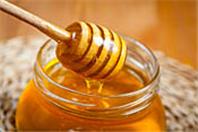UK researchers are investigating components of UK honeys and testing for activity against two of the most common hospital acquired infections antibiotic-resistant bacteria MRSA and Clostridium difficile.
13 June 2011
“University researchers and the National Botanic Garden of Wales are appealing for help in building up a DNA profile of the nation’s honey. They hope to use the information to identify plants which could fight antibiotic-resistant bacteria such as the ‘superbug’ MRSA. The honey project could also help fight the diseases currently attacking Britain’s bees.
Honeys have long been known to have anti-bacterial properties and are used in wound dressings today. Different honeys act against different microbes depending on the chemicals in the plants visited by bees.”
cardiff.ac.uk/news/articles...
HONEY NEEDED FOR SUPERBUG FIGHT
18 October 2012
Spurred on by the antibacterial attributes of Manuka honey, the project aims to identify native British plants with similar therapeutic properties by screening honey samples collected from every part of the UK.
"In preliminary studies we have identified a number of Welsh honeys with antibacterial activity and are in the process of determining their DNA profile," said Professor Baillie, School of Pharmacy and Pharmaceutical Sciences.
"We are therefore appealing to beekeepers from across the UK to send us samples along with a list, if known, of the plants their bees feed on," he added.
cardiff.ac.uk/news/articles...
From the BBC
bbc.co.uk/news/uk-wales-mid...
2011, The earlier Cardiff research paper:
INHIBITION OF BIOFILMS THROUGH THE USE OF MANUKA HONEY
